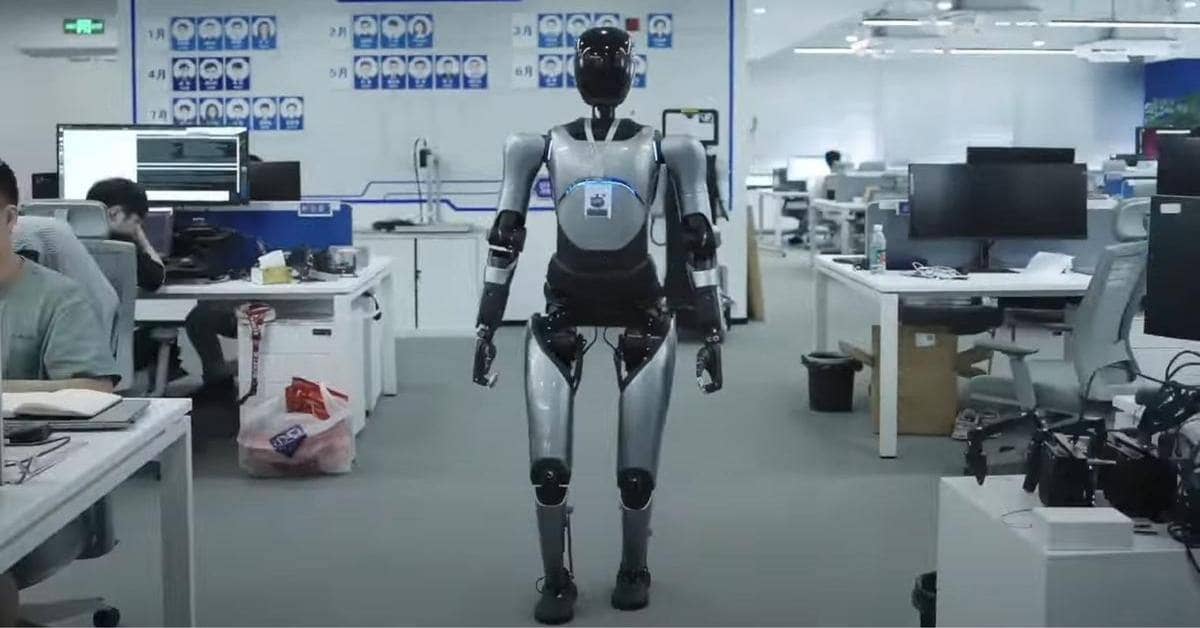In a world often dominated by negative headlines, it’s crucial to highlight the incredible advancements shaping our future. This week’s breakthroughs from China offer a potent antidote to the pervasive pessimism, showcasing the power of innovation and its potential to solve some of humanity’s greatest challenges. From the development of sophisticated humanoid robots to groundbreaking research in biocomputers and the promising fight against Alzheimer’s, China is making significant strides. This article delves into these exciting developments, offering a glimpse into a future brimming with technological optimism and improved human well-being. Prepare to be inspired by the remarkable progress being made in the fields of robotics, biocomputing, and medical research.
China’s Rise in Humanoid Robotics
China is rapidly advancing its capabilities in humanoid robotics. Recent developments showcase increasingly sophisticated machines capable of performing complex tasks, mimicking human movements with remarkable dexterity. These advancements are not just about creating aesthetically pleasing robots; they represent a significant leap forward in artificial intelligence, with potential applications spanning manufacturing, healthcare, and even personal assistance. The implications are far-reaching, impacting various sectors and potentially revolutionizing the way we live and work.
Biocomputers: A New Frontier in Computing
The development of biocomputers in China represents a paradigm shift in computing technology. By harnessing the power of biological systems, scientists are exploring a new frontier in processing information. This innovative approach promises to surpass the limitations of traditional silicon-based computers, leading to faster, more energy-efficient, and potentially more powerful computing capabilities. The potential applications of biocomputers are vast, with implications for artificial intelligence, drug discovery, and data analysis.
The Promise of Biocomputers in Combating Alzheimer’s
One of the most exciting applications of biocomputer technology lies in its potential to combat Alzheimer’s disease. Chinese researchers are actively investigating how biocomputers can be utilized to better understand the complexities of this devastating disease. By simulating brain processes at a cellular level, researchers hope to identify novel therapeutic targets and develop more effective treatments. This research holds tremendous promise for millions affected by Alzheimer’s and their families.
Technological Collaboration and Global Impact
The advancements in China’s technological landscape are not isolated events. They represent a growing trend of international collaboration and knowledge sharing. These breakthroughs have global implications, offering potential solutions to challenges faced worldwide. The collaborative spirit underlying these advancements signals a bright future where technological progress serves the greater good, fostering a healthier and more prosperous planet for all.
Conclusion
The innovations coming out of China, specifically in humanoid robotics, biocomputers, and the fight against Alzheimer’s, are truly inspiring. They demonstrate the immense potential of technological advancement to address some of the world’s most pressing issues. These developments are not just isolated incidents; they’re part of a larger trend towards a more data-driven and optimistic future. As we continue to witness such progress, it’s crucial to remain optimistic and support the research and development that will shape a brighter tomorrow. The spirit of innovation and collaboration shown in these advancements holds immense promise for improving the lives of billions globally. Let’s embrace this wave of technological progress and continue to support efforts aimed at creating a healthier, more sustainable, and more equitable future.

